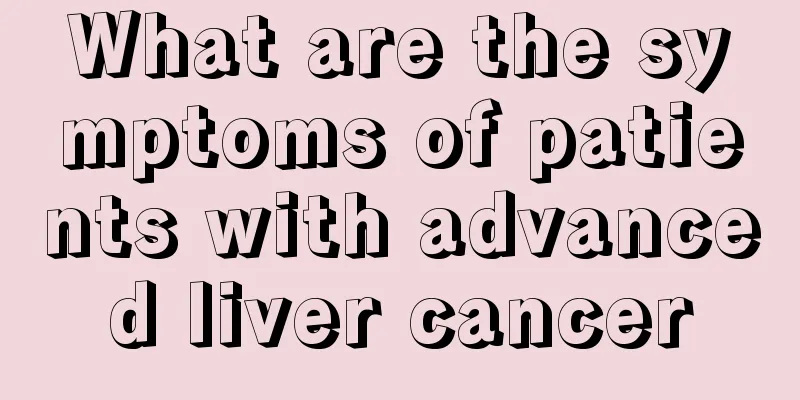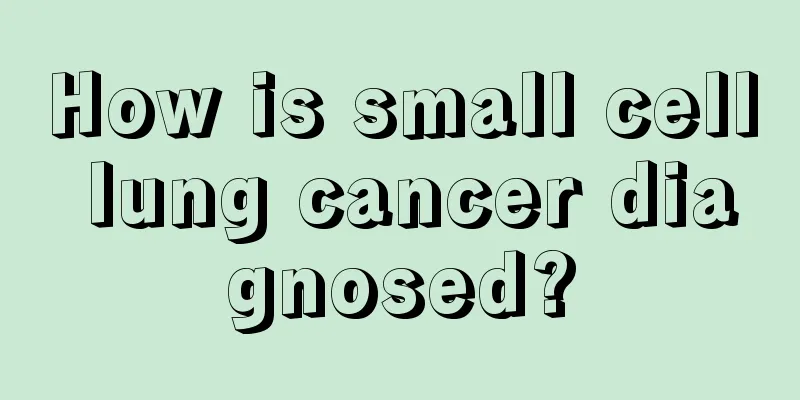What are the symptoms of patients with advanced liver cancer

|
The onset of liver cancer is relatively hidden. Early liver cancer generally has no symptoms. When patients show obvious clinical symptoms, the disease is often in the middle or late stage. The symptoms of mid-stage liver cancer are between the early and late stages, and generally there are no obvious symptoms. Patients who have symptoms and seek medical treatment on their own are mostly in the middle or late stage, often with symptoms such as pain in the liver area, loss of appetite, fatigue, weight loss and liver enlargement. So we summarize the symptoms of mid- and late-stage liver cancer for everyone: Weight loss and fatigue Liver cancer can cause liver damage, decreased digestion and absorption, and reduced food intake. In addition, the products of tumor metabolism can cause changes in the body's biochemical metabolism, leading to weight loss and fatigue, and the degree of weight loss can worsen. In severe cases, cachexia may also occur. Gastrointestinal symptoms In liver cancer, the liver functions poorly, resulting in increased pressure in the portal vein system and digestive tract dysfunction. The enlarged tumor may compress or involve the stomach, which may lead to digestive tract symptoms such as loss of appetite, upper abdominal fullness after meals, or even nausea, vomiting, and diarrhea. Bleeding In liver cancer, liver function is damaged and coagulation function is abnormal, so bleeding tendencies such as bleeding gums, nose bleeding, gastrointestinal bleeding, and subcutaneous ecchymosis are common. Pain in the liver area Pain in the liver area is also one of the common symptoms of liver cancer patients. The pain is often more obvious at night. At the beginning, it is mostly intermittent or continuous dull pain or stabbing pain. It may be mild or severe or relieve itself within a period of time, or even disappear. It is mostly located in the right rib or under the xiphoid process, but it can also radiate to other parts and cause discomfort in other parts. For example, the pain of the tumor at the top of the diaphragm of the right lobe of the liver can radiate to the right shoulder or right back; the tumor in the left lobe of the liver will cause distension and pain in the upper abdomen earlier. In addition to the above-mentioned symptoms of mid- and late-stage liver cancer, most liver cancers are complicated by liver cirrhosis, so mid- and late-stage liver cancers are generally accompanied by symptoms of chronic liver disease, such as chronic liver disease face, liver palms, spider hemorrhoids, hepatosplenomegaly, lower limb edema, jaundice, etc. If you have any questions about liver cancer, you can go to a regular hospital for consultation and treatment, or call the online consultation hotline or online consultation experts. Experts on related diseases are ready to answer your questions in detail at any time. Liver cancer http://www..com.cn/zhongliu/ga/ |
<<: Why is the survival time of liver cancer short?
>>: How to prevent bladder cancer
Recommend
Is it good to wash your face with white vinegar?
People wash their faces every day in their lives....
Can lung cancer infect children?
Can lung cancer be transmitted to children? After...
What causes cervical cancer
More than 95% of cervical cancers are caused by H...
Ear bleeding causes tinnitus, how to stop the bleeding as soon as possible
In daily life, many people pick their ears, but a...
The principle of descaling with white vinegar
In fact, in our lives, some long-term water conta...
Schistosoma japonicum is one of the main causes of colorectal cancer
As a common digestive system tumor, colorectal ca...
Here's what you need to know about liver abscess
Liver abscess is a very common disease in daily l...
Will eating frog oil cause internal heat?
Many people wonder whether eating frog oil will c...
Can liver cancer be cured if it is discovered early? This is what you need to do in the early stages of liver cancer
Liver cancer is one of the most common cancers in...
Chest and throat feel stuffy and painful
If your throat feels stuffy and painful, you may ...
What are the benefits of soaking your feet in orange peels
As an important part of the human body, feet play...
How to correct forward head tilt
Successful people walk with great grace, but some...
How to take care of bleeding from blowing nose in nasopharyngeal cancer? What are the examination methods?
The main symptoms of nasopharyngeal cancer are ma...
Can applying potato slices reduce swelling?
Many people accidentally get swollen eyes after s...
Is brown stool normal?
If the stool is brown, it cannot be ignored, of c...









